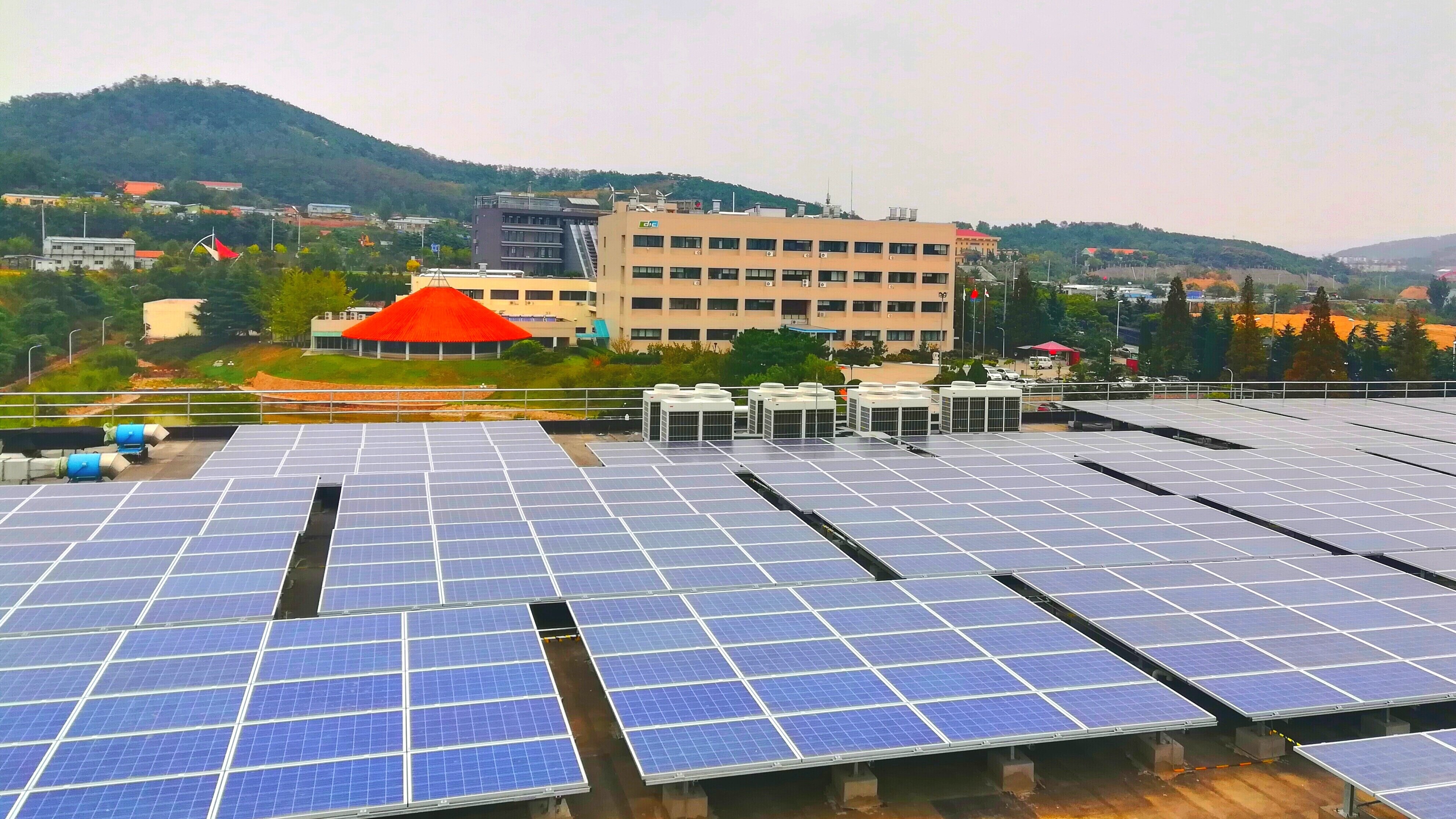DIC Subsidiary Qingdao DIC Finechemicals Installs Solar Power System —Move aimed at helping reduce global emissions of CO2—
- Sustainability
- News Release
Tokyo, Japan–DIC announced that wholly owned subsidiary Qingdao DIC Finechemicals Co., Ltd., a manufacturer of base materials for liquid crystals (LCs) in Qingdao, Shandong, in the People’s Republic of China (PRC), has installed a new solar power system with the aim of reducing its emissions of CO2, a greenhouse gas recognized as a major cause of global warming. The new system, which began operating in September 2017, is a first for the DIC Group it the PRC and will produce electric power for use by Qingdao DIC Finechemicals.
In fiscal year 2016, the DIC Group set a medium-term target for reducing absolute emissions of greenhouse gases by 7.0% from the fiscal year 2013 level by fiscal year 2021, or an average of 1.0% annually. Nonetheless, owing to a variety of factors, including the establishment of an LC production line in fiscal year 2013, emissions at Qingdao DIC Finechemicals have continued to trend upward.
Qingdao DIC Finechemicals made the decision to install a solar power system having recognized solar power as the best choice of renewable energy sources for the company because it capitalizes on Qingdao’s monsoon climate, abundant intense sunshine and excellent atmospheric conditions.
In considering renewable energy options, Qingdao DIC Finechemicals concluded that solar power was its best choice for capitalizing on Qingdao’s monsoon climate, abundant intense sunshine and excellent atmospheric conditions. The system, which features solar panels set up on the roof of the plant building, has an annual output of 408 MWh, is expected to reduce the company’s annual CO2 emissions by approximately 8.5% from the fiscal year 2016 level.
The DIC Group is promoting the use of renewable energy and taking steps to ensure an optimal mix for purchased electric power at its production facilities worldwide. In recent years, the Group has advanced efforts to combat global warming, including installing solar power systems at sites in Thailand (Samut Prakan Prov.) and Japan (Ibaraki Pref.) and a biomass boiler in Japan (Ishikawa Pref.). The Group is confident that these efforts, as well as the new solar power system in the PRC, will contribute substantially to the reduction of its CO2 emissions beginning in fiscal year 2018. Going forward, the Group will continue working to reduce its greenhouse gas emissions on a global basis, thereby contributing to the realization of a sustainable society.
-Ends-
*Note: The files are in Adobe Acrobat Format. To view them you will need Acrobat Reader.



